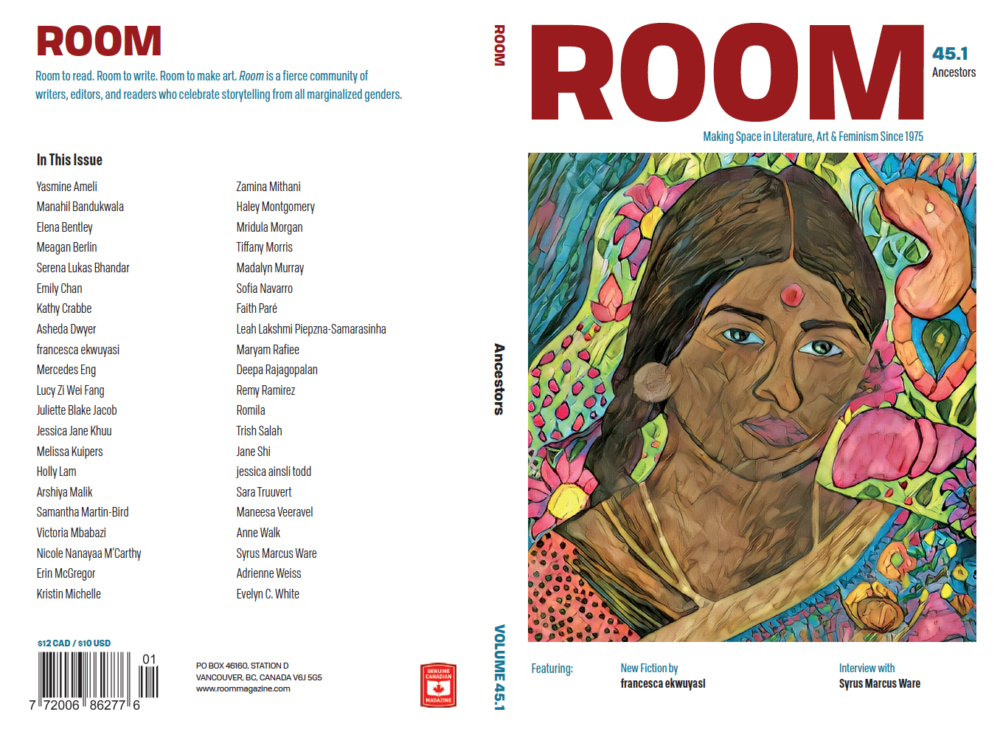As a settler descendant of multiple diasporas, I know much of my families’ histories only through stories I’ve heard—merry anecdotes of my grandma slaying rattlesnakes, my great-grandfather speaking Russian with Doukhobors, or mournful tales of another great-grandfather murdered over a land dispute, tales of plague, Partition, and poverty. I picture countless potential parallel futures as they dissolve in my hands.
As this issue of Room shows, stories are our lifeblood and our inheritance. For those of us whose voices have been pushed to the margins or erased, stories become a way to find our way back to what once was, and to cast our lives into the unforgiving present and future.
The stories found within the issue reflect an eclectic mix of approaches to the theme of ancestry: grandchildren mourn language and knowledge lost in the passing of grandmothers and seasons, dead forefathers rise from their graves to answer for past wrongs, and treasured kinfolk teach new generations how they once learned to survive.
In commissioned writer francesca ekwuyasi’s short story, a daughter reckons with the choices her mother had in marrying her polygamist father, as well as the choices she made in leaving her home in Lagos and choosing to marry a (white) woman. The fraught experience of race and ancestry under the spectre of white supremacy reappears in our interview with Syrus Marcus Ware, as he proposes re-centring BIPOC communities, Indigenous resurgence, Land Back, and disability justice movements in the fight against climate change.
Lastly, strangely, and somehow comfortingly, I found three otherwise unremarkable objects appear again and again as I edited the stories in the issue: pierogies, perennials, and polka dots. I hope that you find in this issue the same strange comfort that working on it has given to me.
~ Serena Lukas Bhandar














